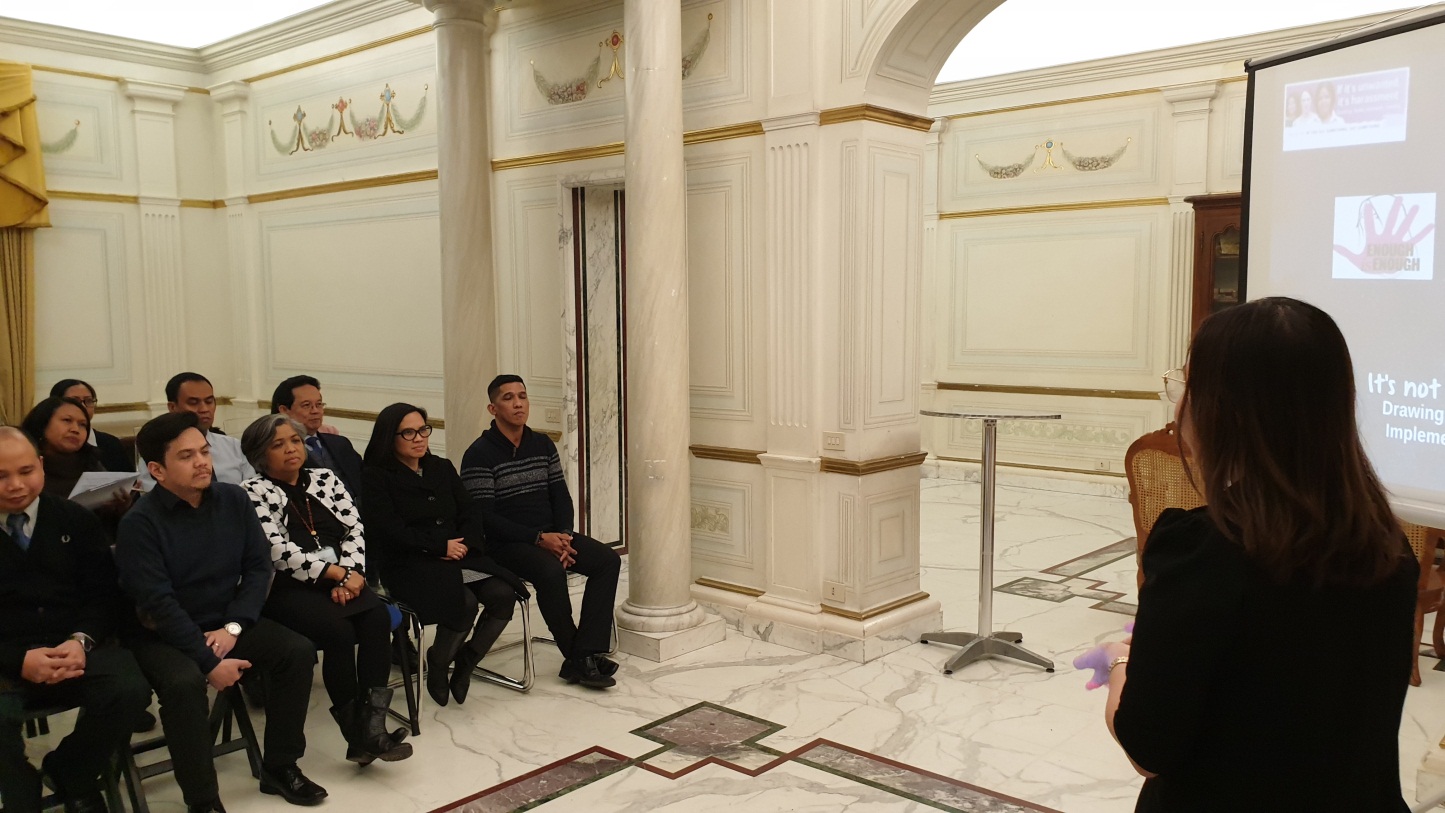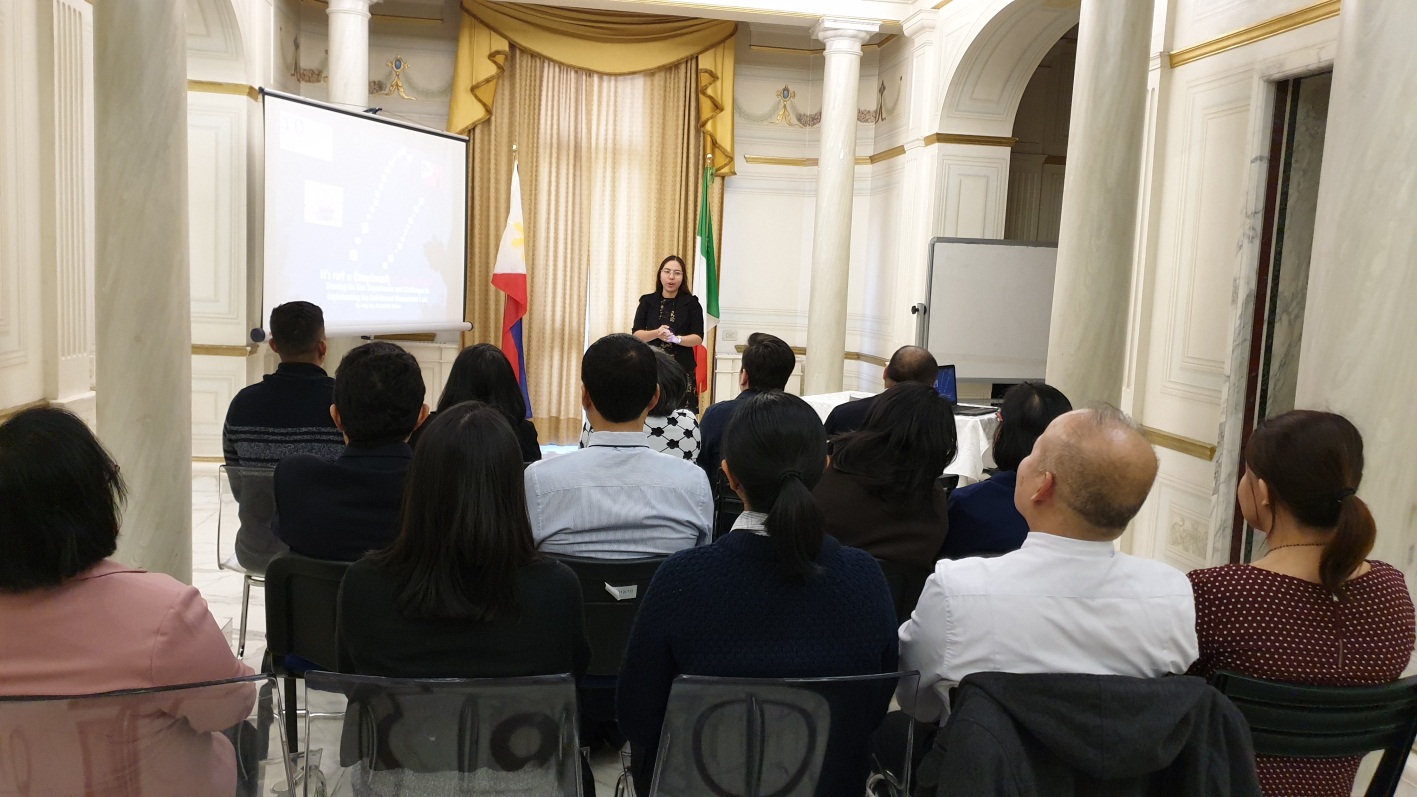
Post’s personnel and personnel from partner agencies were briefed on the significant role they play in implementing the provisions of the Magna Carta of Women and the Department’s anti-sexual harassment policy.
ROME 22 February 2019 – In preparation for the upcoming National Women’s Month celebration in March and as part of the Department’s efforts at gender mainstreaming and implementing its Gender and Development (GAD) Agenda 2019-2022, the Philippine Embassy in Rome conducted a seminar on “Magna Carta of Women (Republic Act No. 9710) and the Anti-Sexual Harassment Policy of the Department of Foreign Affairs”.
The two hour seminar held from 5:15 to 7:15 PM (CET) at the Embassy’s Social Hall, was attended by twenty-one (21), (10 male and 11 female) officers and staff of the Embassy, including local hires and personnel of partner agencies.
Third Secretary, Vice Consul, and Administrative Officer Ma. Claribel M. Ochoa discussed the rights of women guaranteed under the Magna Carta of Women and the role of the Embassy and partner agencies in its implementation. Emphasis was made on the use of gender-fair and gender-sensitive language in communicating and dealing with clients as well as on the importance of the collection of sex and age disaggregated data in the delivery of Embassy’s services. A briefer on the salient features of the 105-Day Expanded Maternity Leave Law (Republic Act 11210) which was signed into law by the President on 20 February 2019 was also provided.
As a former officer supervising the GAD Secretariat of the Department, Vice Consul Ochoa highlighted the role of the Department’s GAD Focal Point System and provided updates on the Department’s efforts towards achieving gender mainstreaming through the adoption of a four-year GAD Agenda, among others.
Likewise, the seminar provided information and awareness on Philippine laws and the Department’s rules and regulations regarding sexual harassment. Participants were made aware of the existence of the Embassy’s Committee on Decorum and Investigation (CODI), which was established pursuant to the 2017 Rules on Administrative Cases in the Civil Service promulgated by the Civil Service Commission and the Department’s own rules and regulations concerning the administrative procedures for the handling of sexual harassment cases. END

Vice Consul Ma. Claribel Ochoa emphasizes the need for government employees to be gender-sensitive and gender-responsive in dealing with clients as she discusses the Department’s policy on anti-sexual harassment.


